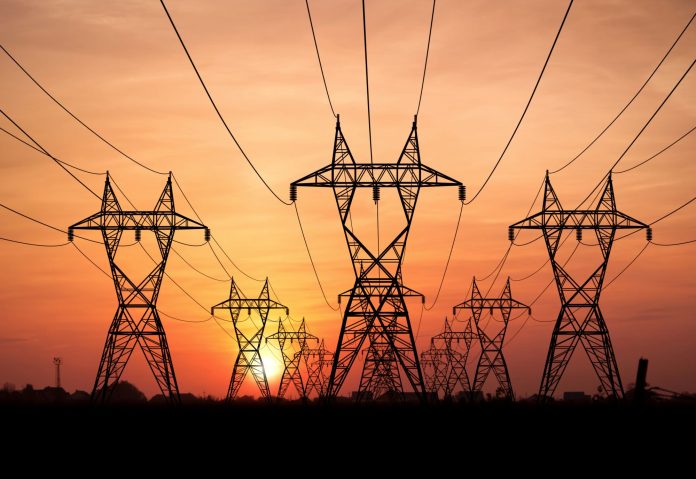Amidst the pursuit of sustainable development and energy security, Africa is undergoing transformation, with regional integration playing a pivotal role. Regional power pools, epitomizing collaborative efforts, address the continent’s energy challenges effectively. As new energy supplies are brought on the market, this year’s edition of the African Energy Week (AEW) conference – scheduled for October 16-20 in Cape Town – will explore the role regional power systems play in Africa.
Forging Bonds and Fostering Growth through Regional Power Pools
Under efforts to connect markets, African countries put in place regional power pools, all of which have been instrumental in facilitating energy access and distribution. In southern Africa, the South African Power Pool (SAPP) connects South Africa, Zimbabwe, Namibia, Angola and Mozambique, among others, and has enabled energy-starved nations to tap into resource-rich neighbors. Countries to the likes of South Africa and Zimbabwe rely heavily on Mozambican power to electrify their economies. Meanwhile, Angola has effectively leveraged the SAPP to strengthen its regional influence, with recent bilateral agreements signed with neighbors set to enhance the distribution of Angolan power.
In Central Africa, the Central African Power Pool (PEAC), operating under the Economic Community of Central African States, drives energy policies, infrastructure and electricity trade. Despite holding 57% of Africa’s hydroelectric potential, Central Africa faces under-electrification and frequent load shedding. The PEAC stands as a strategic response to these challenges and interconnects grids among ten nations, aiming for an energy exchange market by 2025 and fostering growth, job creation and energy access.
In the region, Equatorial Guinea’s ambitious Central African Power Pipeline project underscores the transformative potential of gas-to-power technologies. By utilizing its abundant gas reserves to generate electricity for the regional market, Equatorial Guinea can play a pivotal role in facilitating access to cleaner energy alternatives across the Central African region. This initiative not only addresses energy shortages but also demonstrates the power of cross-border collaboration in leveraging energy resources for mutual benefit.
The emergence of innovative energy resources, such as gas-to-power technologies, holds promise for the continent
Meanwhile, West Africa, rich in energy resources, is poised for a substantial energy transformation. Nations like Nigeria, with substantial gas reserves, are well-positioned to enhance the regional power supply. By establishing power plants in Nigeria to harness these resources, countries within the West Africa Power Pool can collaboratively increase energy production, address energy deficits, and facilitate sustainable development across the region.
Similarly, the North African Power Pool (NAPP) promotes energy cooperation and integration among North African countries. Major participants within NAPP include Egypt, Algeria, Tunisia, Libya, and Morocco. These nations collaborate to optimize energy resources, expand electricity access, and support economic growth. NAPP’s initiatives aim to enhance regional energy security, promote sustainable energy practices, and create a more resilient electricity infrastructure.
Finally, established in 2005, the Eastern Africa Power Pool (EAPP) fosters cross-border power trade and grid interconnection. With thirteen member countries and fourteen utilities, including Burundi, Djibouti, the DRC, Rwanda, Egypt, Ethiopia, Kenya, Sudan, Tanzania, Uganda, Libya, South Sudan, and Somalia, EAPP strategically bridges the SAPP and the Middle East. Positioned amidst rich energy resources and strong economic growth, Eastern Africa actively strengthens connectivity among EAPP nations.
Initiatives include the Tanzania-Zambia Interconnector and discussions for links to the Middle East via Ethiopia and Sudan. Presently, EAPP operates four synchronized clusters, like Egypt-Libya and Kenya-Uganda, as per the 2019 Power Balance Statement. Cross-border transmission lines extend electrification to remote border cities, highlighting the potential of shared infrastructure and regional integration.
The Future Role of Regional Power Pools: Navigating New Energy Resources
As Africa evolves, so does its energy portfolio. The emergence of innovative energy resources, such as gas-to-power technologies, holds promise for the continent. These innovative solutions have the potential to revolutionize the energy landscape, providing cleaner and more sustainable alternatives. However, the integration of these resources into the existing infrastructure presents its own set of challenges.
This is where the role of regional power pools becomes even more crucial. Power pools act as streams for the efficient distribution and utilization of these new energy resources. Gas-to-power technologies, for instance, require a robust infrastructure for transportation, distribution, and utilization. By leveraging the existing interconnectivity facilitated by power pools, African nations can streamline the integration of these technologies, ensuring their seamless adoption across borders.
AEW 2023 provides the best platform to address challenges associated with power pool integration. The conference represents the largest gathering of energy stakeholders on the continent, and aims to foster dialogue and the exchange of ideas around this crucial industry.




